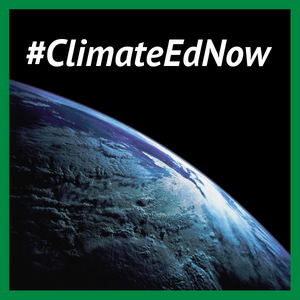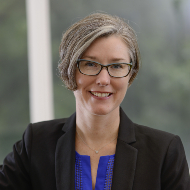Even though the Next Generation Science Standards emphasize technological (or scientific) solutions, solving climate change will also require social change. Even beyond individual behavior changes (such as personal reduction of CO2 through lifestyle choices), climate change solutions will be multi-scalar, occurring at levels from the local community to the global. This approach requires an understanding of social systems. All the while, powerful forces will be pushing back on needed changes, sowing doubt through the media. (And not only the media. In my own research focusing on the sources and impacts of mis- [or even dis-] information about climate change, I’ve found that students’ own textbooks use language that communicates doubt about the causes and effects of climate effect. Youth who read these texts express more doubt themselves.)
Therefore, a “whole” climate change education must also include more explicit connections to the social aspects of climate change. This may still happen within the walls of science classrooms, but it would be better if it could take place throughout the school curriculum. For example, pairing science teachers with social studies teachers would garner the expertise of both disciplines’ ways of knowing (and teaching). Such an interdisciplinary curriculum could include how the merits of particular solutions are weighed, how science-related policy is created, and how examination of values and ethics are an integral and important part of that process. Youth should have the opportunity to model such processes in mock public deliberations. Perhaps some of these learning activities could take place outside the classroom — youth could then become active leaders in their own neighborhoods and communities. Climate change education can also happen in English courses, in which youth learn about the use of rhetoric and develop media literacy.
Such a “whole” climate change curriculum could be transformative, for schooling as well as for society.
Read other essays from our #ClimateEdNow series.

 A robust climate change education is imperative for youth, empowering them to meet the largest environmental challenge they will likely face within their lifetimes. We often put the yoke of this educational challenge on the backs of science teachers, as climate change most naturally rests within the science education curriculum and classroom. However, I argue that this is only half a climate change education.
A robust climate change education is imperative for youth, empowering them to meet the largest environmental challenge they will likely face within their lifetimes. We often put the yoke of this educational challenge on the backs of science teachers, as climate change most naturally rests within the science education curriculum and classroom. However, I argue that this is only half a climate change education.